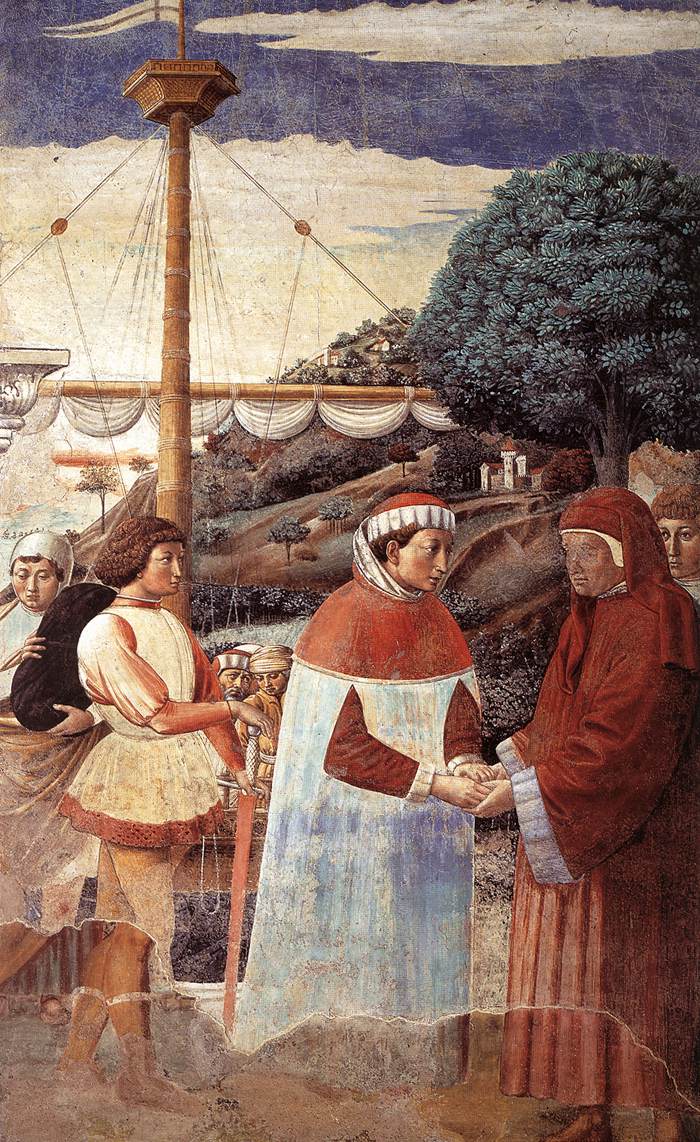Description
The painting Disembarkation at Ostia (scene 5, east wall) by artist Benozzo Gozzoli is an Italian Renaissance masterpiece noted for its detailed artistic style and masterful composition. This work is in the Chapel of the Magi in the Florence Cathedral, and is one of the most impressive in the chapel.
The painting represents the arrival of the Magi at Ostia, a port near Rome, where they prepare to continue their journey to Bethlehem. The composition of the work is impressive, with a large number of characters and details that fill the painting with life and movement. The Three Wise Men, mounted on their camels, stand out in the center of the painting, surrounded by a crowd of people who receive them and offer them gifts.
Color is another interesting aspect of Gozzoli's work. The artist uses a rich and vibrant palette, with bright, warm tones that reflect sunlight. Details on the characters' clothing and accessories are painted with great precision, giving a sense of realism and depth to the work.
The history of the painting is also fascinating. It was commissioned by the Medici family in the 15th century, and is believed to have been painted between 1459 and 1461. The work was done in the Chapel of the Magi, which was built by the Medici to commemorate their lineage and their role in the Church. Catholic.
Finally, there are little-known aspects of the work that are also interesting. For example, there are a series of small scenes at the bottom of the painting that represent the stories of the saints and the prophets. These scenes are painted in great detail and show Gozzoli's talent and skill as an artist.
In short, Benozzo Gozzoli's Disembarkation at Ostia (scene 5, east wall) is an Italian Renaissance masterpiece noted for its detailed artistic style, masterful composition, rich and vibrant palette, and fascinating story. It is a work that deserves to be admired and studied for its beauty and its historical and cultural value.

